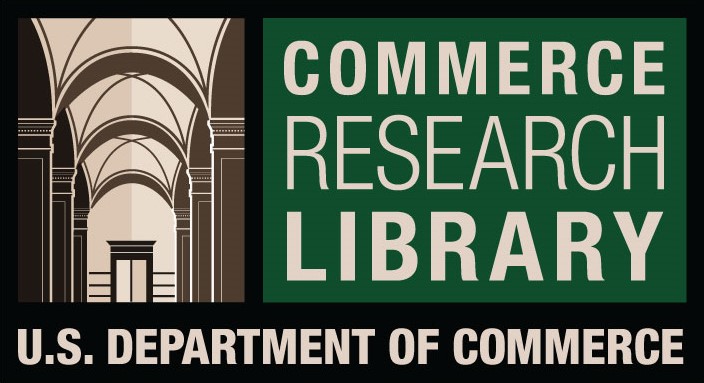SOCIOCULTURAL EDUCATION OF STUDENTS OF PHILOLOGICAL DEPARTMENTS OF UNIVERSITIES USING ENGLISH
DOI:
https://doi.org/10.61841/7tjwhh51Keywords:
socioculture, sociocultural competence, , faculty of philology,, englishAbstract
This article was written in order to theoretically substantiate and practically develop methods for the formation of sociocultural competence through English for students of the philological faculty of the university. The following tasks are defined and solved in the article: 1) to identify the relationship of language, culture, social factors, as well as the relationship between language learning, in order to establish and characterize the phenomena that make up the content of sociocultural competence; 2) to consider and characterize the content and structure of sociocultural competence formed by students of the philological faculty; 3) to analyze the features of the formation of sociocultural competence in the selected conditions; 4) to justify the principles of selection of the content of education in order to form sociocultural competence among students of the philological faculty; 5) to develop a structure for the organization of educational material for the formation of sociocultural competence in this contingent of students; 6) create a set of exercises aimed at the formation of sociocultural competence of students of the philological faculty; 7) to experimentally test the developed set of exercises. On the basis of the problem, a training methodology was developed, didactic foundations were determined and conclusions were drawn.
Downloads
References
1. AndryuninaM.V.,YazikovayakulturakakinstrumentsotsialnogovospitaniyaAviable:http://www.rusnauka.co m/23_SND_2008/Pedagogica/26653.doc.htm.
2. Anurova I.V., Formirovaniefunkcional'nojsociokul'turnojgramotnostinasrednemjetapeobuchenija v shkole s uglublennymizuchenieminostrannogojazyka: Avtoreferatdissertacii .kandidatapedagogicheskihnauk. M., 2001. – p.18.
3. Artemov V.A. Psihologijaobuchenijainostrannymjazykam / V.A. Artemov M.: Prosveshhenie, 1969. – p
.279.
4. Babaskina,E.G.Metodikaovladenijaperevodcheskojstrategiejposredstvomrazvitijapoznavatel'nojaktivnostis tudentov: naprimerediscipliny «Predperevodcheskijpraktikum»: avtoref. dis.... kand. pedagog. nauk:
13.00.02. – Moscow: 2011. – pp. 6-23.
5. Batrakova E. B., Neyro-lingvisticheskoyeprogrammirovaniyekaksposobobucheniyayaziku. Aviable: http://www.rusnauka.com/6_NITSB_2010/Pedagogica/ 59043.doc.htm
6. Bespal'ko V.P. Teorijauchebnika: Didakticheskijaspekt / V.P. Bespal'ko-M.: Pedagogika, 1988. - p.160.
7. Bim I.L. Podhod k problemeuprazhnenij s poziciiierarhiicelejizadach / I.L. Bim // IJaSh 1985. - # 5. - pp. 30 - 38.
8. Bim I.L., Metodikaobuchenijainostrannomujazykukaknaukaiproblemyshkol'nogouchebnika. M., 1977. – p.288.
9. BuhbinderV.A.Razvitieleksicheskihnavykovustnojrechi/V.A.Buhbinder//
Ocherkimetodikiobuchenijaustnojrechinainostrannyhjazykah-Kiev, 1980.-pp. 14-31.
10. Cvetkova T.K. Formirovanieleksicheskihnavykov u mladshihshkol'nikov s pomoshh'jukomp'juternojprogrammy: avtoref. diss. kand. ped. nauk / L.A. Cvetkova M.: 2002. – p. 20.
11. Elizarova G.V., Kul'turaiobuchenieinostrannymjazykam. SPb., 2001.- p.292.
12. Galskova N.D., Gez N.I. Teoriyaobucheniyainostrannimyazikam. Lingvodidaktikaimetodika / Ucheb. posobiyedlya stud. lingv. uni-tov ifak. in. yaz. vissh. ped. ucheb. zavedeniy. – 5-ye izd. – M.: Izd.sentr
«Akademiya», 2008. pp. 336.
13. GnatkevichJu.N. Obuchenieinojazychnojleksike v nejazykovomvuze / Ju.V. Gnatkevich Kiev: Vyshhashkola, 1989. – p.185.
14. Kashina E.G., Traditsiiiinnovatsii v metodikeprepodavaniyainostrannogoyazika / Ucheb. posobiyedlyastudentovfilol. fakul.uni-tov. Samara: Izd-vo «Univers-grupp», 2006.pp. 43-75.
15. Kitajgorodskaja G.A. Intensivnoeobuchenieinostrannymjazykam. Teorijaipraktika. - Moscow:
«Russkijjazyk», 1992. – p. 85.
16. Leont'ev A.N. Osnovypsiholingvistiki / A.A. Leont'ev M.: Smysl, 1997.- p. 287.
17. Lomov B.F., Metodicheskieiteoreticheskieproblemypsihologii / B.F. Lomov M.: Nauka, 1984. – p. 444.
18. Luria A.R. Nejropsihologijapamjati / A.R. Lurija. V 2-h t. T. 1 M.: Pedagogika, 1974. - 311 e.; T. 2 - M.: Pedagogika, 1976. – p. 191.
19. Minyar-Beloruchev R.K. Metodicheskijslovnik. Tolkovyjslovar' terminovmetodikiobuchenijajazykam /
R.K. Min'jar-Beloruchev M.: Stella, 1996. – p. 144.
20. Mitrofanova K.A. Obuchenieinojazychnojleksikemedicinskojsferystudentov-medikov. Dis. kand.ped.nauk, Ykaterinburg, 2010. – p. 168.
21. Novikov A.I. Strukturasoderzhanijatekstaivozmozhnost' eeformalizacii (namaterialahnauchno- tehnicheskihtekstov): avtoref. diss. .dok. filol. nauk / A.I. Novikov. -M.: 1983. – p. 45.
22. Passov E.I. Osnovymetodikiobuchenijainostrannymjazykam / E.I. Passov. M.: Russkijjazyk, 1977. – p. 214.
23. Rahmanov I.V. Obuchenieustnojrechinainostrannomjazyke / I.V. Rahmanov. -M.: Vysshajashkola, 1980. –
p. 120.
24. Rubinshtejn S.L. Osnovyobshhejpsihologii / C.JI. Rubinshtejn -Sankt-Peterburg: Piter, 2006. – p. 713.
25. Safonova V.V. Sociokul'turnyjpodhod k obuchenijuinostrannomujazykukakspecial'nosti. Dissertatsiyadoktoraped.nauk, Moscow, 1992, - p. 300.
26. Shirmatov S. The Technology of Development of a Culture of Students’ Communication (Based on Social Networks) International Journal of Innovative Technology and Exploring Engineering (IJITEE), ISSN: 2278-3075, Volume-IX, Issue-II, December 2019. Aviable to: http://www.ijitee.org/download/volume-9- issue-2
27. SkalkinL.V.
Kommunikativnyeosnovyotborajazykovogomaterialadljaobuchenijainojazychnojrechevojdejatel’nosti /
V.L. Skalkin Voronezh, 1983. – p. 112.
28. Smirnov A.A. Problemypsihologiipamjati / A.A. Smirnov M.: Prosveshhenie, 1980. – p. 144.
29. Sorokin Ju.A. Psiholingvisticheskieaspektyizuchenijateksta / Ju.A. Sorokin. M.: Nauka, 1985. – p. 80.
30. Sweet Henry, Wrenn, Charles Leslie. 'Henry Sweet', Transactions of the Philological Society. – London: Oxford University Press. 1946. vol. 46, pp. 177-201
31. Tolipov U.K. Praktikarealizaciiinnovacionnyhtehnologij v vuze// KrOGPIim.Tarasa Shevchenko, 2013. – Vyp. - pp. 162-164.
32. VorobyovaV.I.,rofessional'no-napravlennoeformirovanielin gvostranovedcheskojkompetenciiuchiteljaanglijskogojazyka (nemeckoeotdelenie, 4-5 kursy). Dissertacija
.kandidatapedagogicheskihnauk. SPb., 1999. – p. 212 and 55 p appendix.
33. Voronova E. N. Sovremennietexnologiiimetodiobucheniyainostrannomuyaziku v VUZe // https://cyberleninka.ru/article/n/sovremennye-tehnologii-i-metody-obucheniya-inostrannomu-yazyku-v- vuze
34. Vygotskij L.S. Izbrannyepsihologicheskieissledovanija / JI. S. Vygotskij M.: Izd-vo APN RSFSR, 1956. –
p. 519.
35. Zalevskaya A.A., Aktual'nyeproblemypsiholingvistiki: slovoitekst. Tver', 1996. - 383 – p.67
36. Zhalolov. Zh. Chet tilinioqitishmetodikasi / Chet tillaroliyoquvyurtlari (fakultetlari) talabalari uchun darslik. – Tashkent: “Oqituvchi” NMIU, 2012. pp. 430.
37. Zhinkin N.I. Rech' kakprovodnikinformacii / N.I. Zhinkin M.: Nauka, 1982. – p. 160.
38. Zimnjaja I.A. Psihologicheskieaspektyobuchenijagovorenijunainostrannomjazyke / I.A. Zimnjaja M.: Prosveshhenie, 1978. – p. 159.
Downloads
Published
Issue
Section
License

This work is licensed under a Creative Commons Attribution 4.0 International License.
You are free to:
- Share — copy and redistribute the material in any medium or format for any purpose, even commercially.
- Adapt — remix, transform, and build upon the material for any purpose, even commercially.
- The licensor cannot revoke these freedoms as long as you follow the license terms.
Under the following terms:
- Attribution — You must give appropriate credit , provide a link to the license, and indicate if changes were made . You may do so in any reasonable manner, but not in any way that suggests the licensor endorses you or your use.
- No additional restrictions — You may not apply legal terms or technological measures that legally restrict others from doing anything the license permits.
Notices:
You do not have to comply with the license for elements of the material in the public domain or where your use is permitted by an applicable exception or limitation .
No warranties are given. The license may not give you all of the permissions necessary for your intended use. For example, other rights such as publicity, privacy, or moral rights may limit how you use the material.









